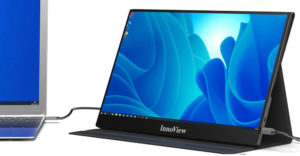
If you had the option to pick your own price for a computer game that only runs on your Linux rig, would you pay to play? Not if you are a typical Linux gamer. At least, that’s the popular perception of fans of free and open source software. Linux is available freely. So why pay for a game — or any other Linux app — when the FOSS mantra is based on a no-cost buy-in?
The team behind the Humble Bundle set of computer games is trying to buck the notion that Linux users are cheapskates. That company allowed its customers to name their own prices to purchase and download their software. Then they parsed the results by what OS the downloaders used.
Linux users were the most generous when compared to Windows and Mac game players. In fact, Linux users were often willing to pay more than Mac or Windows users when given the chance to name their own price for the for-purchase game software.
“For each of our Humble Bundle promotions, we have seen that on average Linux users are twice as generous — if not more — than Windows users, with Mac users falling in the middle. Linux users have also accounted for nearly a quarter of Humble Bundle’s revenue,” John Graham, cofounder of Humble Bundle, told LinuxInsider.
Vapor Market or Growing Trend?
Humble Bundle’s marketing success with its pay-what-you-like pricing strategy may be nothing more than an anomaly. But with the rapidly growing popularity of Android, Linux users looking for a unique gaming challenge might be on the vanguard of a new pay-for-Linux marketing trend.
“Despite traditional arguments to the contrary, it is clear to us that there is a serious Linux gaming market out there, and we will continue to support Linux in the future,” said Graham.
Some industry insiders who ponder buying and usage trends do not see Graham’s pay-for-Linux games’ success as anything but a passing fancy.
“Well, pure FOSS PC Linux on the desktop is a pretty small share of the [U.S.] market as far as I can tell, so I think that limits the upside even if it’s possible that users would pay more in some cases,” said Lewis Ward, IDC’s research manager for consumer markets: gaming.
Want to Share?
In a survey conducted in the third quarter of 2010, Ward found only 1 percent of gamers used the Linux platform. That compared to more than 75 percent for the Windows platform and 4 percent for Apple machines, he told LinuxInsider.
For a game developer who needs a base of users from which to operate, it does not matter how wonderful the platform is, he concluded. “It is just not a large enough base to say, ‘I’m going to devote x amount of budget’ to develop for a market that is less than 1 percent of the total.”
Linux Players Don’t Talk Money
Unlike other marketing strategies such as shareware, Linux users are less accepting of paying for software. Open source programs are expected to be free. Free is part and parcel of using Linux. Paying for technical support for a free operating system, however, is different.
“Right now, it looks like Linux users don’t really like to pay for anything, and there isn’t a vendor doing a general consumer package, which is significantly the potential market anyway,” Rob Enderle, principal analyst for the Enderle Group, told LinuxInsider.
The big problem with Linux users is their aversion to paying for anything, he added — so for Humble Bumble’s developers to get customers to pay for Linux games is in itself pretty amazing.
Android Antithesis
That said, a trend in paying for preferred gaming apps might be more productive on Linux-related portable devices. And the Linux derivative OS, Android, might well be the platform for change when it comes to Linux gamers parting with their cash.
“Gaming is all about numbers, and the developers are already building for Windows, iOS and Android,” said Enderle.
Even programmers developing games and other apps for Android devices are not assured of having a large paying market, though. And since Android does not run on Linux desktops and laptops, game players might be willing to pay for an Android game but still be tightwads when it comes to a Linux distro equivalent.
Unfortunately, the Android platform, which is closest to Linux, is only providing a return for those who have figured out how to get advertising revenue. Android users do not appear to want to pay for apps, according to Enderle.
Show Me the Money
Unless they are willing to take a gamble, game developers have little incentive to enter the Linux game market. The market needs a strong scent of money for developers to make significant dollars and cents from Linux gamers.
“Until someone can do a Linux-based product that can demonstrate a sustainable revenue model for a game developer,” said Enderle, “it is unlikely that it will get much interest by game developers who are already overcommitted and not that happy with the closest derivative, Android.”
Who knows? If Linux players show they are willing to pay for games not available anywhere else, it might take off. So far, however, there is no track record for Linux users being willing to pay for games, he maintained.
A Place to Market
A major complaint about the lack of sales among Android app developers, in general, is volume. They can only make about one tenth of what they draw in the App Store. That should not be a big surprise, however. The Android Market is built around the advertising model, according to Enderle.
Still, despite Android’s comparatively better market potential for game developers, a Linux-only outlet might pose an attractive opportunity for the right type of game. That advantage could be for those game developers who target Linux users, suggested IDC’s Ward.
Still, it just doesn’t have enough volume to warrant the necessary expenditures for most game developers, he said.
Roll the Dice
The Linux game market is not lucrative for a major player like an Atari or Activision, but a smaller game company might stumble on a title that will sell a million more than it would have sold otherwise, Enderle noted.
A company could hit the right combination of game and market to provide enough revenue. You have to pick the target market for what it is you want to do, he said.
“I certainly wouldn’t recommend tying the state of your company to pure free and open source software on the Linux desktop,” said Ward. “If it’s inside a browser, or if it has some Java platform so it’s completely agnostic in terms of the operating system, then it doesn’t matter.”






















































The word free, when used in the context of free software, refers to freedom, not cost. Think of how free speech refers to liberty to speak rather than a monetary cost to speak.
Software that is free must guarantee the following four freedoms:
1. The freedom to run the software for any purpose.
2. The freedom to study how the program works. The source code is a prerequisite for this.
3. The freedom to sell or otherwise redistribute copies of the software.
4. The freedom to sell or otherwise redistribute copies of your modified versions of the software, so long as the four freedoms remain intact.
Ummm, want a solution to this problem? Ok dum dums here it is… wait for it… it’s almost here… ready?
MAKE YOUR LINUX GAME LOOK, RUN, AND FEEL BETTER ON LINUX THAN ANY OTHER PLATFORM…
duh.
Is that half the time, when someone does make a Linux game, it doesn’t work as well as the Windows one, and usually due to half the bells and whistles being dependent of stable drivers, with support for what is on the video card. There is a terrible track record from vendors with respect to doing either of those right. The net result being that, if you want the latest tech in a game, you go with Windows. If you want 5 year out of date tech, you still go with Windows, because those games where never written for Linux. You put up with an OS that eats half the system resources, gets in the way of the game itself, and often includes ports of some games from console that manage to take something that ran on 10 year old hardware well, and suddenly needs 4 cores, 8GB memory, and a 1TB hard drive to just "install", on the PC… (Ok, not quite that bad, but try installing Force Unleashed on a single core processor, with or without twice the memory that the console it came from needed to run the same thing. Betting you will give up about 30 minutes into the install, when it becomes obvious why it says – Recommended: Dual core processor).
Basically though, Linux is hampered by incomplete drivers, which is caused by not having games on it, which is caused by it being so hard to design games that work with the incomplete drivers. Beyond that, the idea that no one will buy a game, is pure idiocy. Quite a few "cross platform" ones have come out, for MMOs, like Eve, and Second Life, etc. The inevitable result, with monthly fees for those, which are oddly, the same no matter which system its on, is almost always, "We are improving the client beyond what we can manage under Linux, or can afford to keep upgrading, so as of X date, we will no longer support a Linux client (or won’t be upgrading it at the same pace)."
In any case, bets on how many of those, "They won’t pay for games", people buy consoles instead, and *do* buy/rent those games, because, a) the damn things work, b) they won’t use Windows, and c) Linux can’t run any of them, including the ones that have non-console versions? Its not that Linux users won’t buy things, its that they don’t want to be overcharged for something that either, in the case of applications, can be done some other way without a $1,000 price tag (like Adobe Photoshop vs. Gimp), or, in the case of a game, it works worse than the Windows version, due not to the OS getting in the way, but the video driver being screwed up, out dated, and incomplete, all the time.
Put simply, if you have the option of the equivalent of watching a movie in a tent, with a leaking roof, during a windy rain storm, with a working projector, and your only other option is going into a heated, warm, non-windy, theater, where the projector only works "part of the time", which would you pick, and how much would you pay for that? This is the choice between OSes for games. You pick the one that at least *usually* doesn’t crash for no reason, and where most of the game works, and put up with the leaking tent, or… you sit in comfort, wondering if it will even start, and how long before something goes wrong with the game itself.